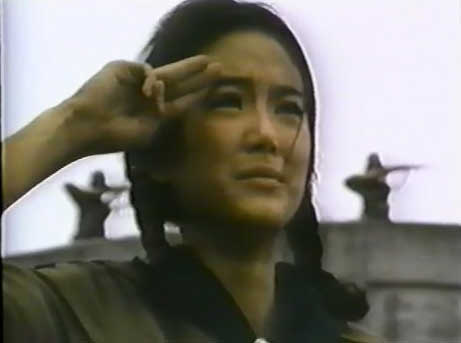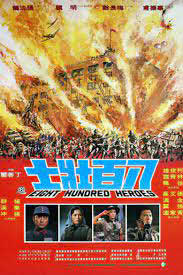

Director: Ting Shan-hsi
Year: 1976
Rating: 6.0
This film had the feel of many of those old Hollywood war films made during WWII – full of valor, personal sacrifice, wooden characters and lots of flag waving. In this film, the flag waving is literal as well as figurative. The story takes place during the Japanese invasion of Shanghai in 1937 and it relates the famous story of the Chinese opposition. We have the Alamo, they have the 800 Heroes. The film was produced in Taiwan and there clearly seems to be more at hand here than simply re-creating an event in Chinese history.
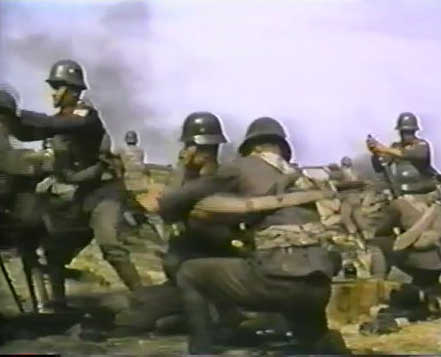
Still this is not a bad war film. It has a large cast and budget and had a wide scope as it details the action from the beginning of the Japanese invasion until the Chinese forces are driven out of Shanghai. I can’t think of too many other Chinese films that are war films in this manner. There is no kung-fu involved – it is a war film very much along the lines of those from the west except it is the Chinese wiping out waves of Japanese soldiers instead of the US Marines. Some large scale battles are mixed with some individual acts of heroism.
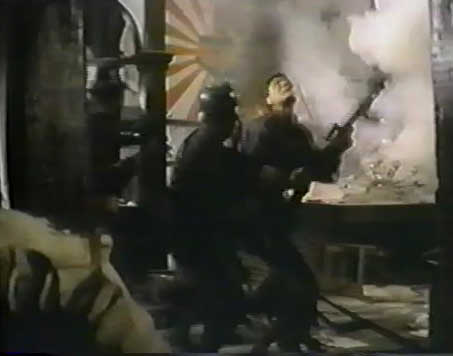
The film focuses primarily on a few characters - Chin Yuan (Ko Chun-hsiung)
who leads the resistance and his wife (Hsu Feng) and Brigitte Lin who is
a Girl Scout. Brigitte looks amazingly young here and has a few emotional
scenes that she plays quite well.
The Japanese begin by bombing the city and then lead an amphibious assault.
The Chinese under Chin Yuan resist bravely, but the firepower of the Japanese
slowly pushes them back. Finally 800 soldiers hold up in a warehouse and
refuse to give up to overwhelming numbers. They hold out for days as the
Japanese repeatedly attack and get pushed back.
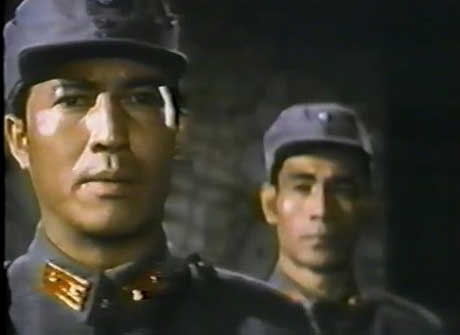
Brigitte is not unfortunately one of the 800. I was certainly hoping she
would be. Instead as I mentioned she is a Girl Scout – but she is not selling
cookies. She has found refuge along with thousands of other Chinese in the
British settlement in Shanghai. As you know, the foreign powers back then
had appropriated areas of the city as their own. Here the refugees are safe,
as the Japanese could not enter those areas. Brigitte helps organize things
within the camps and on two occasions supplies the embattled troops at the
risk of her own life. She has two good emotional moments in the film when
she gets to emote. Once when her parents demand that she leave with them
and she gets down on her knees and begs to stay and not be dishonored. Then
later she takes the flag to the troops – first swimming across the river,
then dodging bullets and is hailed as a hero – and has a song written about
her!
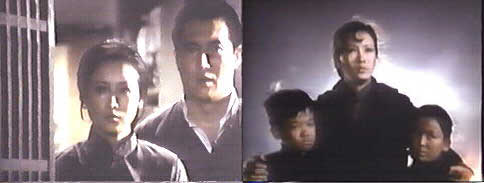
Just remember that these troops were Nationalist troops loyal to Chiang
Kai Shek and the flag that so many people die for is the Nationalist flag.
Pure cornball patriotic flag waving stuff – but effective to some degree.
There are some good emotional moments in the film. Hsu Feng – one of my
favorite actresses of late through her work for King Hu – is terrific as
the loving and loyal wife and Sylvia Chang (also amazingly young looking)
has one great scene where she gives a speech crying out for revenge against
the Japanese. So this film has three of the very best Taiwanese actresses
– but the film really focuses for the main part on Chin Yuan and the 800
heroes. A number of other Hong Kong/Taiwanese film stars are also in
this – sort of like The Longest Day. Look for Carter Huang, the two Chin
Han’s, Chang Yi, Peter Chang-chun and many others recognizable faces or they
would be if the quality of my video wasn’t so bad!
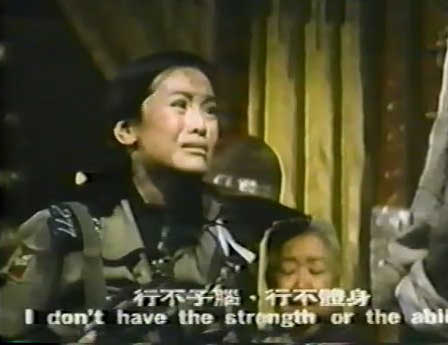
The film is based on a true incident that took place in 1937 and Brigitte's character is based on a real person as well. In the West the 800 Heroes were known as the Lost Battalion (thanks to Chris for sending me this information). The story was also filmed in 1938 with the same title and here is what writer Bono Lee had to say about the incident in the book "A Century of Chinese Cinema".
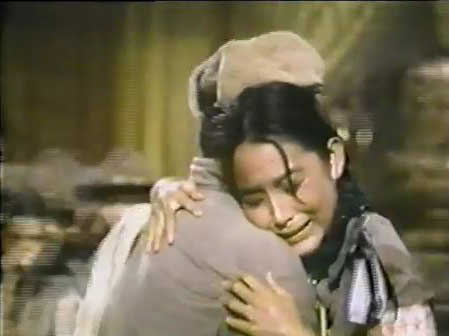
"The film chronicles a famous incident, which took place at the onset of the Sino-Japanese War, when the Japanese army invaded Shanghai and the foreign concessions quickly declared neutrality. To facilitate the Nationalist Army's retreat down the Suzhou River, Xie Junyuan, Commander of the 88th division, led his 800 soldiers in a heroic defense of a warehouse in Shanghai's Zhabei district. Stranded, outnumbered and under continuous fire, they held their ground for four days despite suffering heavy casualties. Their courageous stance and miraculous survival against odds became a symbolic manifestation of the city and the nation's will to defend their homeland.
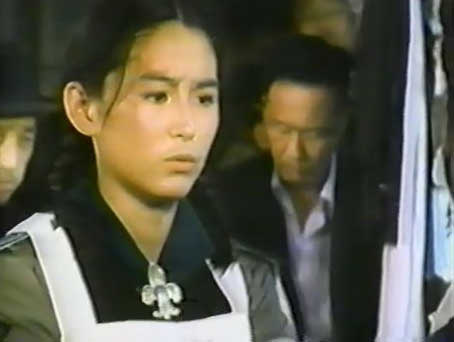
This culminates in the historic incident when a girl scout, Yang Huimin,
braves enemy fire to swim across the river to deliver a Nationalist flag
to the soldiers."
This historical incident was remade in 2020 by the Mainland as The Eight
Hundred which seems very strange in that it was the Nationalist Army that
fought the Japanese.
